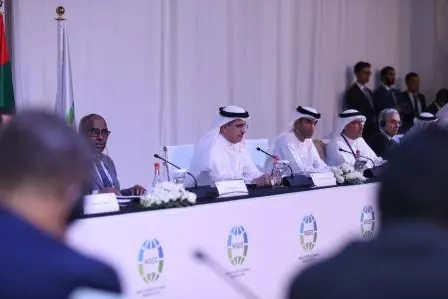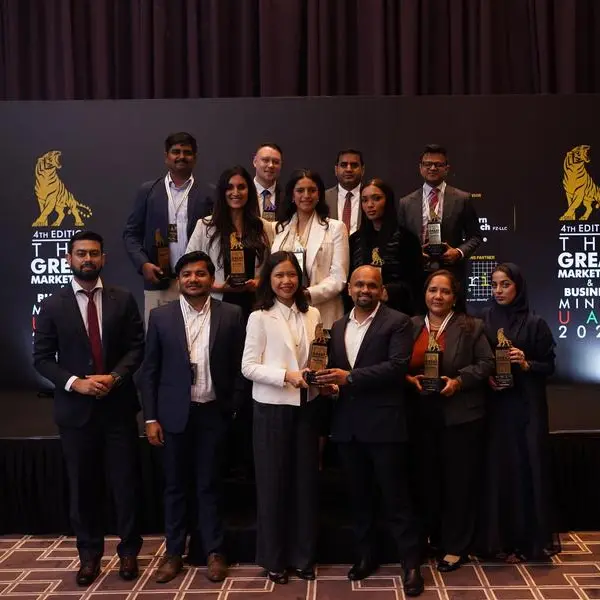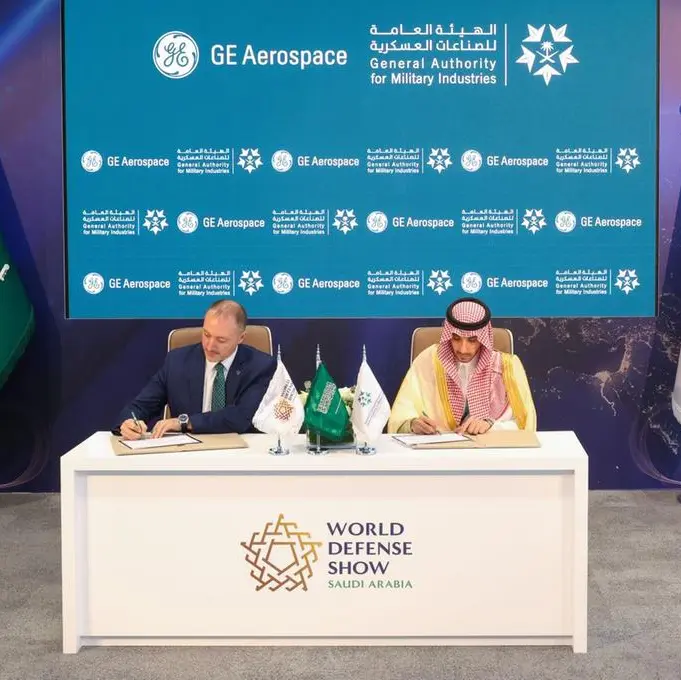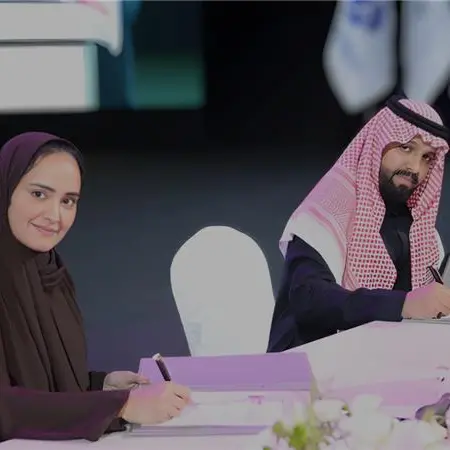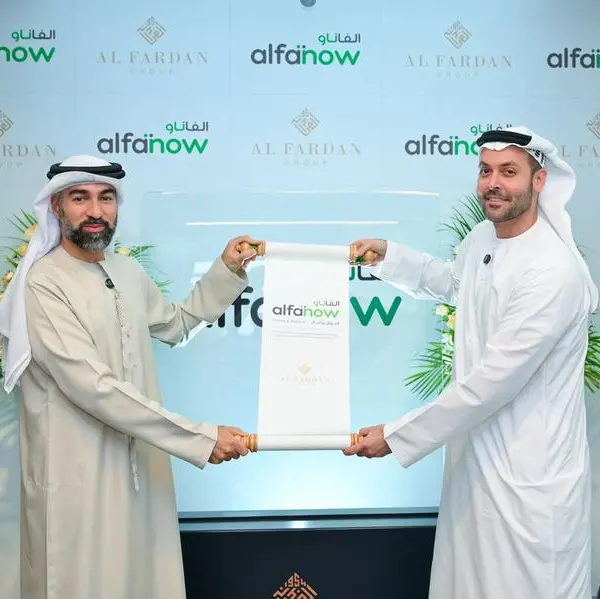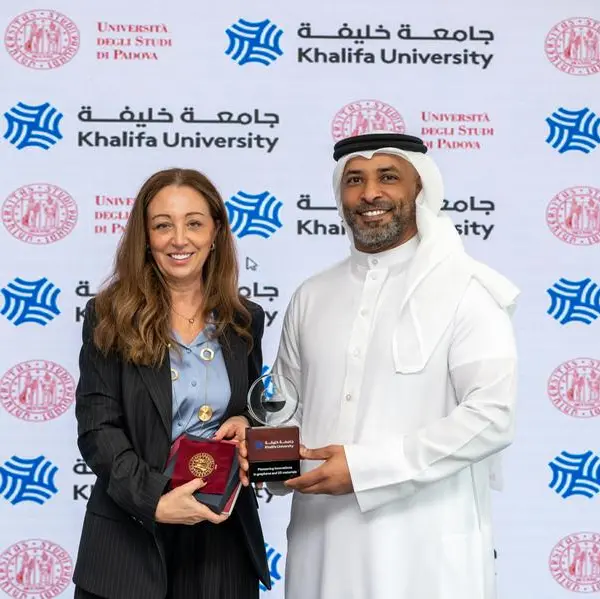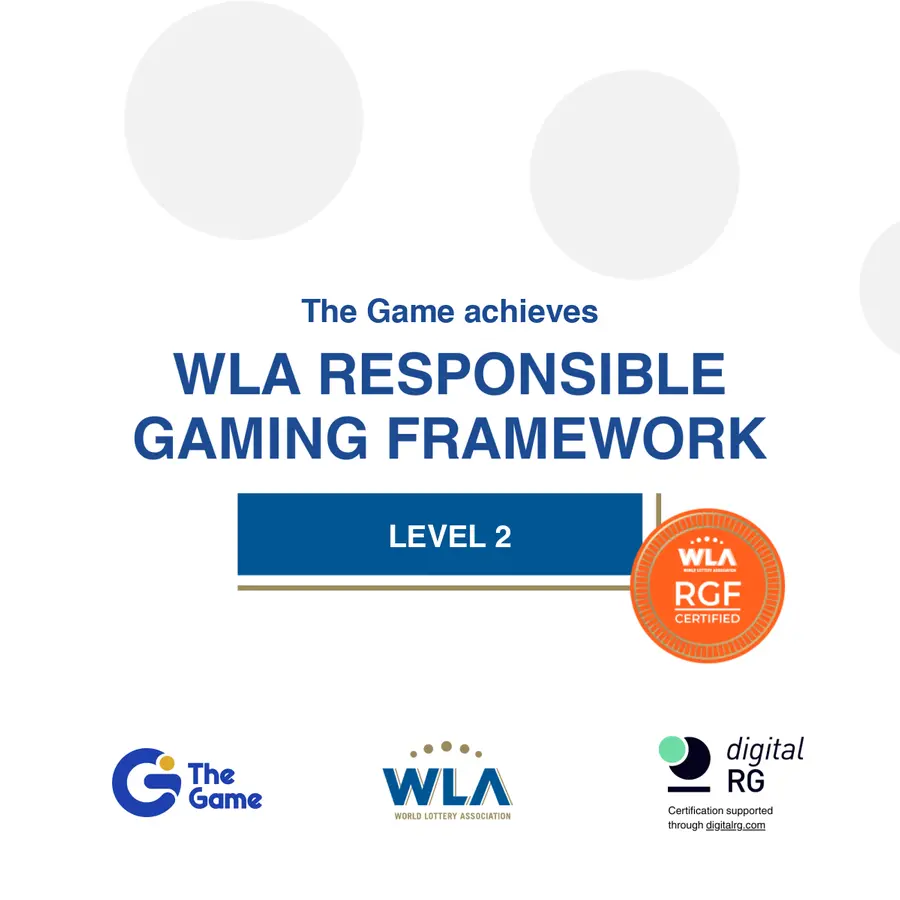PHOTO
The UAE hosts the 2019 Global Ministerial Conference on Green Economy on the sidelines of the World Green Economy Summit. The event is the extension of the series of Regional Ministerial Conference on Green Economy that was successfully held recently across the five regions of the world in Asia Pacific, Africa, South America, the Middle East and North Africa, Europe and the Commonwealth of Independent States.
The event witnessed the presence of H.E. Saeed Al Tayer, Chairman of the World Green Economy Organization (WGEO); H.E. Dr. Thani bin Ahmed Al Zeyoudi, Minister of Climate Change and Environment, UAE; H.E. Mr. Abdulrahman Ghanem Almutaiwee, Director of the Office of the Ministry of Foreign Affairs and International Cooperation in Dubai, UAE; along with leaders of several international organizations including Ovais Sarmad, Deputy Executive Secretary of United Nations Climate Change Secretariat; Jorge Chediek, Director of United Nations Office for South-South Cooperation (UNOSSC). In addition to 48 speakers from various economic, environmental and social policy sectors. The agenda kicked off with a special presentation made by 7-year-old Jumana Rahman, who talked about plastic pollution and best ways on how to reduce its use on a household scale. Jumana’s presentation proved timely and strategic as she represents the voice of the future generation, which is the real bet and the enduring wealth.
On the sidelines of the event, the MENA Regional Collaboration Center (MENA RCC), which will be based in Dubai, had been officially inaugurated. The regional center operates as part of a collaborative effort between the WGEO and the United Nations Climate Change Secretariat. Under the UNFCCC facilitation process, RCC Dubai will provide technical support to stakeholders to increase investments in technologies, solutions and partnerships that aim to decarbonize the economy as well as promote behavioral change.
H.E. Saeed Al Tayer, Chairman of the WGEO, said: “The RCCs Global Forum is set to be held in Dubai for the first time, which is another milestone for the WGEO, with the participation of all six Regional Collaboration Centres, including their partners and collaborating organization. The meeting in line with the official inauguration of the new Regional Collaboration Centre located here in the emirate, comes as a result of the fruitful strategic partnership between the organization and the UN Climate Change Secretariat to serve the Middle East, North Africa, and South Asia .”
H.E Al Tayer added: “We have already started the process of establishing a unique platform that brings the public and the private sector under one roof to cooperate and identify ways of implementing sustainability in a new economic model. By convening through various platforms around the world that involves a broad range of stakeholders, the WGEO is committed to creating shared solutions and collectively promoting their implementation.”
The opening remarks were followed by a keynote address by H.E. Azali Assoumani, President of the Union of Comoros who shed light on the importance of green economy transition for countries in the Global South. H.E. Assoumani said: “The shift towards increasing investments in green economies in various countries has become imperative as a roadmap towards achieving the goals of sustainable development. Along with many countries, we seek support the principles of green economy and spread awareness about the importance of green transformation in all vital sectors at the economic, social, and technological level, among others. We are confident that the Global Ministerial Conference on the Green Economy is an ideal platform to mobilize international efforts to promote policies for the transition to a green economy and to place environmental issues at the top of the priorities of all countries in support of the Sustainable Development Goals. Through our participation in the conference, we look forward to strengthening our cooperation with the participating countries to advance sustainable development in Comoros as we take benefit from global experiences and expertise.
Several ministerial sessions were held throughout the two-day event, which started with a discussion on ‘Facilitating the transition to low greenhouse gas emissions and climate-resilient economies and societies’ with H.E. Felipe Calderón, Former President of Mexico as the featured speaker. The second session was a ‘UN stakeholders round table in support to advancing the green economy agenda’ while third session emphasized the ‘Role of Regional Collaboration Centres in implementing climate action and green economy’. The final session on the second day was led by H.E. Karol Galek, Chair, Commission on Technological Development at National Council, Slovak Republic on ‘Solutions forum in national level capacity development and funding for green action and sustainable development’.
On the sidelines of the conference, a ministerial panel discussion was held between high-level dignities included H.E. Mr. Zamirbek Askarov, Vice-Prime-Minister, Kyrgyz Republic; H.E. Ms. Fatma Zohra Zerouati, Minister of Environment and Renewable Energies, Algeria; H.E. Dr. Mohamed Mubarak Bin Daina, Chief Executive, Supreme Council for Environment, Kingdom of Bahrain; H.E. Mr. Deometrio do Amaral de Carvalho, Secretary of State for Environment, East Timor; H.E. Mr. Mohammad Abdullah Abunayyan, Chairman of ACWA Power and WGEO Private Sector Platform; H.E. Dr. Adam El Dukheri, Director General, Arab Organization for Agricultural Development; H.E. Mr. Jonathan Young, Chairperson, Economic Development, Science and Innovation Committee, Parliament, New Zealand; and H.E. Mr. Attila Szinay, Minister of State, Ministry of Agriculture, Hungary. The panel moderated by H.E. Ms. Sitara Ayaz, Chairperson, Standing Committee on Climate Change, Senate, Pakistan.
An executive training course was also held during the event where participants learned the various facets of the green economy including green investment promotion and developing green innovation and resource efficiency in line with green economy principles. The program was designed to equip participants with the knowledge and skills in scaling up the transition to a green economy in line with the SDGs.
The Global Ministerial Conference on Green Economy is a global conference initiated by the WGEO in close cooperation with the United Nations). Its main goal is to scale up and increase the replication of successful green economy solutions by engaging countries within a regional setting and deepen the impact of the global transition to a green economy. The conference provides a platform to promote successful evidence-based green economy solutions that meet the needs of countries in implementing the UN Sustainable Development Agenda 2030.
© Press Release 2019Disclaimer: The contents of this press release was provided from an external third party provider. This website is not responsible for, and does not control, such external content. This content is provided on an “as is” and “as available” basis and has not been edited in any way. Neither this website nor our affiliates guarantee the accuracy of or endorse the views or opinions expressed in this press release.
The press release is provided for informational purposes only. The content does not provide tax, legal or investment advice or opinion regarding the suitability, value or profitability of any particular security, portfolio or investment strategy. Neither this website nor our affiliates shall be liable for any errors or inaccuracies in the content, or for any actions taken by you in reliance thereon. You expressly agree that your use of the information within this article is at your sole risk.
To the fullest extent permitted by applicable law, this website, its parent company, its subsidiaries, its affiliates and the respective shareholders, directors, officers, employees, agents, advertisers, content providers and licensors will not be liable (jointly or severally) to you for any direct, indirect, consequential, special, incidental, punitive or exemplary damages, including without limitation, lost profits, lost savings and lost revenues, whether in negligence, tort, contract or any other theory of liability, even if the parties have been advised of the possibility or could have foreseen any such damages.
